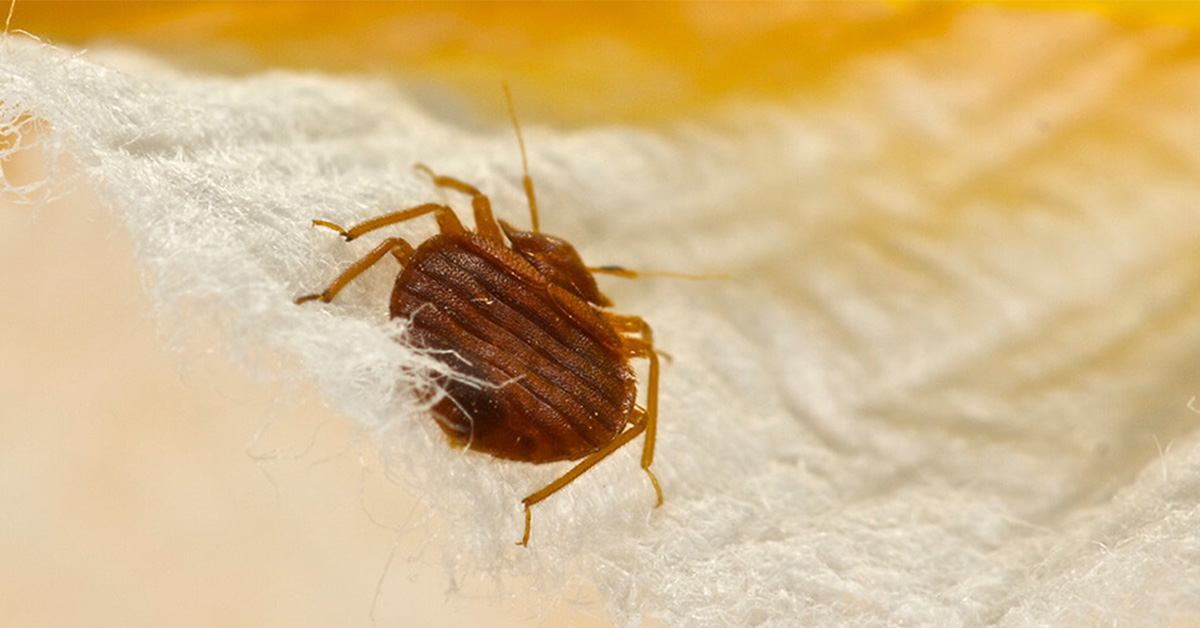Kings Bed Pest Exterminator Cincinnati: Pro Bug Solutions
Kings Bed Pest Exterminator Cincinnati: Pro Bug Solutions
Blog Article
A Breakdown of the Numerous Types of Pest Control Solutions
In the world of insect control, a multitude of approaches exist to fight the presence and attend to of unwanted animals. From the conventional usage of chemical pesticides to much more cutting-edge biological control remedies, each technique supplies unique benefits and restrictions. As we browse through the varied landscape of pest control remedies, understanding the details of each method comes to be paramount in figuring out the most efficient training course of action. Remain tuned as we discover the nuanced world of parasite control approaches and find just how each kind plays a distinct duty in safeguarding our atmospheres.
Chemical Pesticides
Chemical pesticides are commonly used in insect control to successfully remove a variety of insects and other pests. These pesticides work by targeting the nervous system of the insects, disrupting their typical functions, and ultimately resulting in their demise. The use of chemical pesticides has been a staple in the insect control market for decades due to their efficiency and quick results.

However, it is essential to utilize chemical pesticides with care due to their prospective harmful impacts on the setting and non-target species. Incorrect application or overuse of these chemicals can lead to contamination, injury to advantageous bugs, and resistance growth in insect populaces. It is essential to comply with security standards and regulations when using chemical pesticides for insect control.
Biological Control Techniques
Considering the potential environmental impacts and threats connected with chemical pesticides, organic control techniques use a more sustainable approach to managing parasite populaces. Organic control includes using natural adversaries, such as virus, parasites, and killers, to subdue insect populations. This technique is frequently a lot more targeted, impacting just the certain parasite species while minimizing injury to valuable bugs, humans, and the setting.

One advantage of biological control is its long-lasting efficiency. As soon as developed, all-natural adversaries can help control pest populations constantly without click to read more the requirement for duplicated applications of chemicals. Furthermore, organic control is often more affordable and can help in reducing chemical resistance in bug populaces gradually. Generally, organic control techniques use a environmentally pleasant and lasting remedy to pest monitoring.

Mechanical Pest Control
Mechanical parasite control involves the physical control or elimination of pests to manage their populaces properly. One common example of mechanical bug control is making use of traps to catch rats or pests.
One more mechanical technique is making use of barriers such as fences, nets, or screens to block bugs from getting in details locations. By physically preventing insects from accessing a place, the probability of problems or damages can be significantly reduced. Additionally, manual methods like handpicking insects off plants or structures can be effective for smaller-scale infestations.
While mechanical parasite control methods can be labor-intensive, they use a non-chemical option that can be environmentally pleasant and lasting. By targeting bugs straight, mechanical control methods can assist keep insect populations in check without counting on pesticides.
All-natural Solutions
Using natural treatments for insect control offers a environmentally friendly and sustainable strategy to handling insect populations without considering chemical treatments. Natural remedies entail utilizing compounds derived from plants, minerals, or various other normally occurring resources to prevent or get rid of pests. Growing specific herbs like basil, mint, or lavender around your building can push back insects due to their solid scents. Diatomaceous helpful resources planet, a powder made from fossilized algae, can be utilized to battle bugs like ants, cockroaches, and bed insects by dehydrating their exoskeletons.
In addition, vital oils such as tea tree oil or neem oil have insecticidal residential or commercial properties that can properly regulate pests while being risk-free for the setting. An additional natural treatment is presenting beneficial insects like ladybugs or praying mantises to your yard to prey on damaging bugs. By including these natural services into bug monitoring strategies, individuals can decrease their reliance on synthetic chemicals and promote a much healthier, a lot more well balanced ecosystem.
Integrated Pest Management
Integrated Insect Administration (IPM) is a detailed technique that incorporates numerous approaches to properly regulate pest populaces while decreasing threats to human wellness and the setting. IPM entails the assimilation of numerous parasite control approaches such as organic try this site control, habitat control, adjustment of cultural practices, and the use of immune plant ranges. By using a combination of these techniques, IPM aims to lower dependence on chemical pesticides, which can have unfavorable influence on communities and human health.
One key facet of IPM is the focus on prevention. By executing measures to stop parasite problems before they occur, such as keeping appropriate cleanliness and securing access points, the need for responsive insect control measures is decreased. Surveillance and routine inspections play a crucial duty in IPM, permitting very early discovery of pest concerns and timely intervention.
Verdict
In conclusion, the numerous kinds of insect control solutions offer a range of choices for effectively taking care of parasite invasions. Organic control approaches utilize natural predators to manage parasites. Integrated Parasite Management combines several methods for an all natural strategy to pest control.
Chemical pesticides are commonly used in insect control to successfully remove a vast array of pests and various other parasites.Mechanical parasite control entails the physical adjustment or elimination of parasites to handle their populaces properly (Kings pest control services Cincinnati oh).Using natural remedies for pest control offers a sustainable and eco-friendly strategy to taking care of bug populations without resorting to chemical interventions.Integrated Pest Monitoring (IPM) is a detailed technique that integrates various approaches to successfully manage pest populations while decreasing dangers to human health and wellness and the environment.In verdict, the different types of parasite control options provide a range of alternatives for successfully managing parasite invasions
Report this page